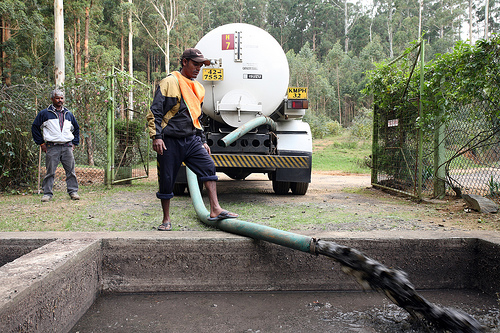Published on: 13/05/2013

An international research institute is helping the government of Sri Lanka to improve septage management in the country.
On 8 May 2013, the Colombo-based International Water Management Institute (IWMI) and the Ministry of Water Supply and Drainage signed a Memorandum of Understanding that provides a collaborative framework for sustainable septage management in Sri Lanka.
IWMI will contribute research data for the drafting of a septage management component of the national sanitation policy. The Ministry will lead implementation of the policy through an advisory committee headed by Minister Dinesh Gunawardena.
Only about 3% of Sri Lankans have a sewerage connection while the rest rely on latrines and septic tanks for sanitation. Safe disposal of septage (fecal sludge) is a problem because of a lack of treatment facilities in large parts of the country.
IWMI is studying a new approach in cities around the world, which treats the sludge so that it can be safely reused as agricultural fertiliser. With the rising costs of imported fertiliser, such an approach would not only benefit farmers but also allow better sanitation and environmental protection for all.
Related news:
Source: IWMI, 8 May 2013